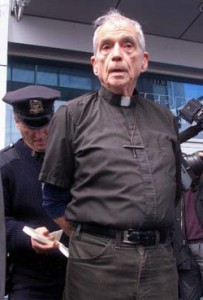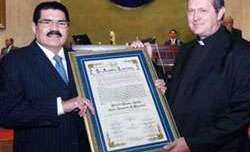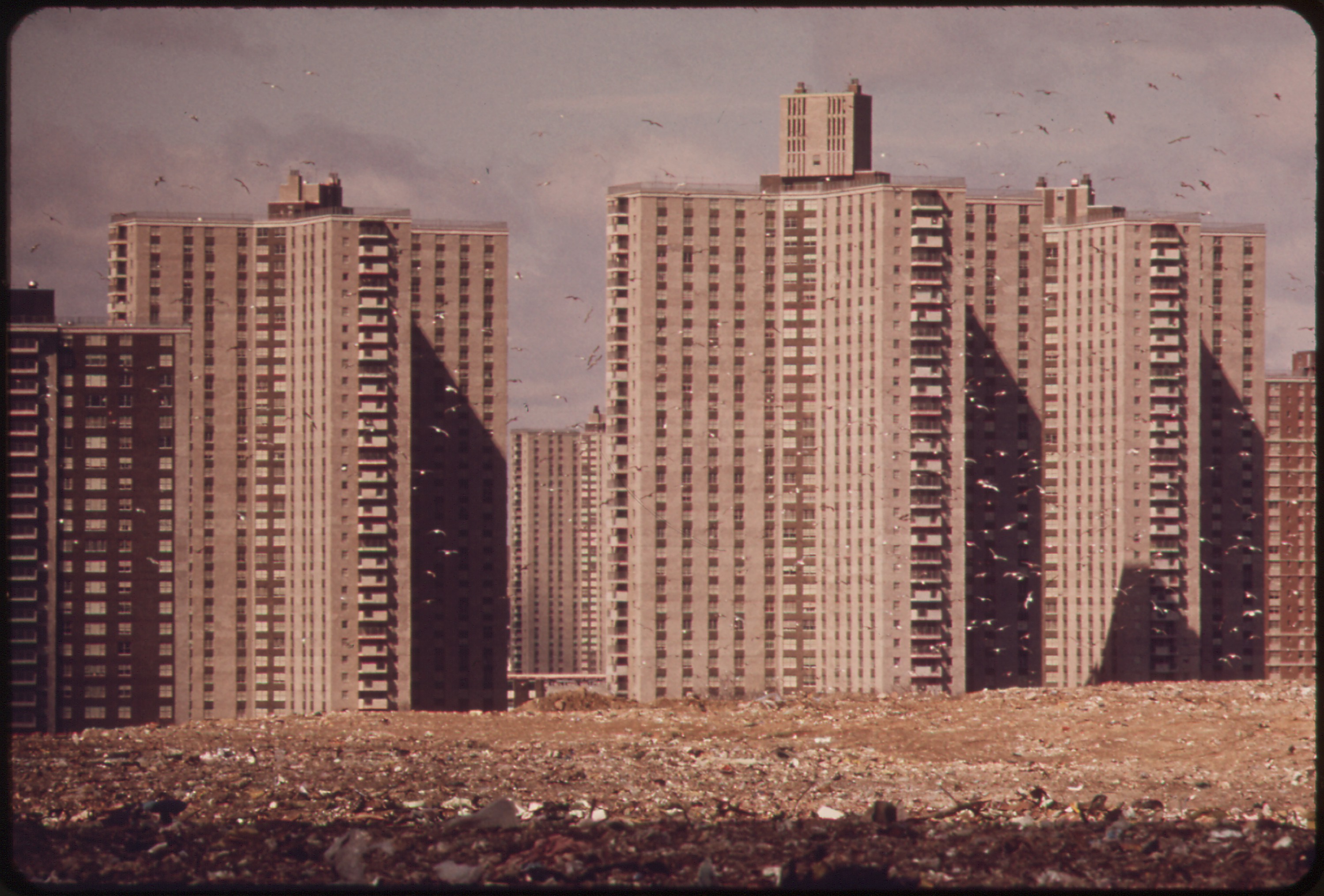This year’s presidential hopefuls seem adrift, far removed from the world of heartache and hopelessness that Rev. Daniel Berrigan, S.J., finds in New York City neighborhood where he lives. When New Yorkers cast their primary ballots on April 7, Father Berrigan won’t be among them.
“I’ve never voted in my life; it’s never made any sense to me,” he said earlier this week. “I don’t know how it could make any difference, so I just keep going about my own work.”
 A month shy of his 72nd birthday, and 24 years after he and eight other Catholics were jailed for raiding a draft board in Catonsville, Md., Father Berrigan’s political “work” hasn’t changed much. He still goes to jail for protesting against abortion clinics and weapons factories. He recently published his 42nd book—a chapter-by-chapter meditation on the Acts of the Apostles—and he continues to be a popular retreat leader.
A month shy of his 72nd birthday, and 24 years after he and eight other Catholics were jailed for raiding a draft board in Catonsville, Md., Father Berrigan’s political “work” hasn’t changed much. He still goes to jail for protesting against abortion clinics and weapons factories. He recently published his 42nd book—a chapter-by-chapter meditation on the Acts of the Apostles—and he continues to be a popular retreat leader.
A recent conversation found Father Berrigan unimpressed with the state of America’s electoral process.
Personally, he lost faith in the process during the Vietnam War era, concluding that voting was a hollow ritual that would never bring real change to American society. In those days, he couldn’t find a candidate who would pledge to stop the war and fight injustice. Today, he said, he finds no one on the ballot who is defending the poor and the sanctity of human life.
“I don’t respect any of them,” Father Berrigan said of this year’s field of candidates. You’ve got (Arkansas Gov. Bill) Clinton going back to execute someone in his own state. These people are totally fragmented. They have a sort of instant conscience in their efforts to get the public on their side. But there’s no real expression of any kind of spiritual conviction.”
That absence of conscience, as he sees it, cuts across party lines and goes to the heart of what is wrong with the American political system.
On the campaign trail, the candidates make their pitches and promises, appealing to the interests of various groups. But they ignore what Father Berrigan calls “the agonies of real life”—for instance, the sufferings of the estimate 50,000 people who are without a home in New York City alone.
“I walk out of my front door here in New York and I have to either stop or walk over homeless people. These people are totally invisible to these gentlemen.” Father Berrigan said. “They’re not an ‘issue’ – they just don’t matter. And the (homeless) can be pushed between the cracks of this kind of politics.”
Life Politics
Although he has been jailed frequently for his participation in “rescues” of unborn children at Planned Parenthood and other abortion clinics, Father Berrigan is critical of those who would use a candidate’s stand on abortion as a litmus test for holding office. He questioned whether all abortion foes were really “pro-life”—whether they really wanted justice for the poor and for those condemned to capital punishment and for those who suffer from America’s military spending and wars.
“People use the issue as a club against other people and other issues,” he complained. “It’s the same old business of taking sides on only one question that involves violations of life. So you have the same people who are saying, ‘Let’s not abort the unborn’ saying, ‘Let’s destroy the children of Iraq through economic sanctions.”
True and lasting political change comes not by evaluating candidates’ positions but by personally entering into service on behalf of those who are suffering. Working with the poor—“overcoming the fear of the poor and the dread of human diversity”—would give politicians a sense of the human dimensions of the country’s problems, he said.
Until politicians do that, he is afraid that, no matter who wins, everyone loses.
“If any of these people had any conscience, they’d begin with these agonies of real life and make it clear that they were going to speak about these things—win or lose. But when everybody wants to win, the people lose. And that’s what’s happening.”
Jesus Politics
Father Berrigan say he is still trying to practice politics the way he believes Jesus did—serving those kept at the margins of society and the political scene: the homeless, the aliens and outcasts, the unborn, and the victims of the wars of race and class.
“We’re all called in such times to be clear—personally and publicly—about the lives of people, especially the people who are declared expendable by this lousy culture.” he said. “That’s a very powerful way of being the Church.”
In their work for social justice, Father Berrigan sees Christians as heirs to the witness and the promise of Jesus and the early apostles. That is one of the reasons why he wrote his new book, Whereon to Stand: The Acts of the Apostles and Ourselves.
“Just as the early Christians faced imperial violence and war and economic injustice, and had something to say and something to do in response, so today that long series of arrests and imprisonments and even martyrdoms is being repeated,” he said. “That’s very heartening to know that that’s a part of a very noble tradition stemming from Jesus.”
Jesus Christ remains the touchstone of Father Berrigan’s life, in and out of political seasons. He said his “affinity and friendship” with Jesus has deepened over the years, as has his commitment to preach the good news to the poor.
“I’m not unusual.” he insisted, “I’m just trying to be a decent human being in a Christian way. I say my prayers and be as truthful as I know how, and let the chips fall where they may.”
Originally published in The Evangelist (April 2, 1992)
© David Scott, 2010. All rights reserved.


